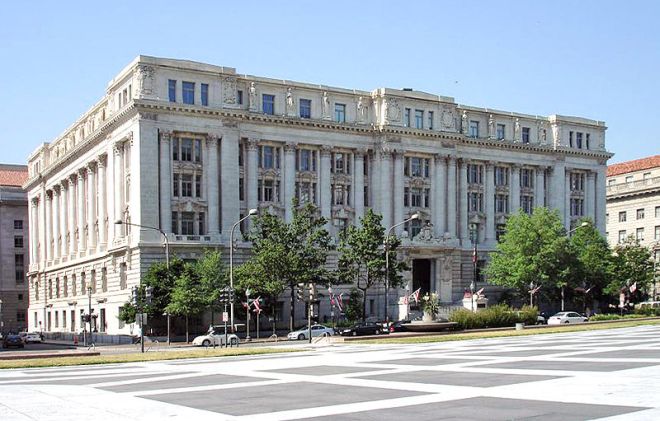By Evangeline Lacroix

Washington — With the release of Mayor Bowser’s proposed budget for the 2018 fiscal year, alderman have come to question the spending for DCPS when it comes to spending for special education and social-emotional support staff, such as counselors and school psychologists.
According to the Fiscal Year 2018 (FY2018) Proposed Budget put forth by Mayor Bowser, 135 million dollars, or 17 percent of the total budget allocated to DCPS, has been allocated to special education. In the Fiscal Year 2016 Budget, 99 million dollars were spent on special education.
But for DC Councilman David Grosso (at large), the Chairman of the Education Committee, a main concern of the budget is centered around students with disabilities, mental health accommodations and how they affect one another.
In preparation for finalizing a budget, The DC City Council Education Committee convened to meet with DCPS Chancellor Antwon Wilson, and his top officers to discuss the 2015-2016 school year.
“These sessions give us an opportunity to look back to look at the past school year to prepare for future budget discussions,” said Chairman of the Education Committee David Grosso.
Several questions centered around mental health services within DCPS were brought up by Councilmember Grosso while questioning Williams.
“When you identify students that have trauma needs, can track the services they need? Are there differences in tracking trauma needs from psychological or social work needs for students?” Grosso said. “I know there is some work to track trauma in Ward Seven and Ward Eight. How does DCPS attend to these problems?”
Wilson was unable to give a complete answer to this question. “I would have to check to see if there are differences in tracking trauma, psychological and counseling needs,” Williams said.
As it stands, DCPS currently employs 169 school-based social workers, and nine social workers in the central office. On top of this, DCPS employs 75 school-based psychologists and 16 psychologists in the central office, according to DCPS’ filing for the 2015 performance oversight Responses.
The FY2018 Proposed budget does not break down based off of hiring practices for special education staff or social-emotional support staff. Although, according to the 2016 DCPS budget, from 2013 to 2016, 148 additional special education teachers had been hired and 66 social-emotional support staff had been hired.
Grosso also questions concerns raised by his constituents about the procedure for students with disabilities. Individual Education Plan (IEP) students have special protections under the Individuals with Disabilities Education Improvement Act (IDEA) of 2004. These protections mandate that every school district must provide free and appropriate public education in the least restrictive environment possible. Meaning students with disabilities are taught alongside non-disabled peers to the greatest extent possible while still receiving proper care and instruction compliant with IDE contracts.
“When a parent comes to me about concerns of their level three child, what typically happens?” Grosso said. He is questioning the steps that need to be taken in order to serve students with disabilities. A level three student is a student with the most complex special needs situation.
There is a 120-day timeline for DCPS administrators to meet with parents and to issues the finding on their child for next steps according to Brian Pick, DCPS Chief of Teaching and Learning.
“Our teams work with principles to make sure they can deliver service for children, which will be done regardless of where the parent stands,” Pick said.
But, not all schools have in-house staff dedicated to physical, behavioral or mental health issues.
“I ask [about school services] because people have come to me and said they have presented a school, and they have been counseled to go to a different school because that school does not have the services they need to work with that child,” Grosso said. “That would be a big problem for that to happen in DC.”
According to the Performance Oversight documents, documents that are released as supplementary information for Performance Oversight Hearings, there are currently staffing gaps for social workers at two elementary schools, two middle schools, two high schools and the Incarcerated Youth Program. There staffing gaps for staff psychologists at eight elementary schools, one middle school, one special education center and the Incarcerated Youth Program. There are also large staffing gaps for school counselors, occupational therapist and speech/language pathologists across DCPS.
When issues arise at those schools that lack social workers or psychologists, ones from the central office are imported to the school for temporary relief, according to the Performance Oversight documents.
Wilson commended school administrators who counsel parents for changing schools for having strong communication skills with parents.
“We are doing everything we can to communicate more broadly,” Wilson said. “I know strong communication happens in schools. The district does track compliance to this work, and it is on school profile sheets.”
while evaluating the efficiency the budgeting for mental health and disabled students, Grosso asked about streamlining the 120-day timeline in compliance with the Special Education Enhancement Act of 2014.
“This is an incredibly important for getting children in the right process to learn,” Grosso said. “How do you need help?”
“It is an additional cost, I don’t want to doubt this. Reducing the timeline means we need more providers, but we are working through this and we are confident that in the end, we will be serving the kids well,” said John Davis, Chief of Schools.
Ultimately working on servicing students with disabilities and their parents in open and consistent dialog are given priority when considering the needs of special education development within DCPS.
“Ultimately everyone is on board with having the best education for IEP students,” Davis said. “It is about having services that will allow IEP students to rejoin their peers.”